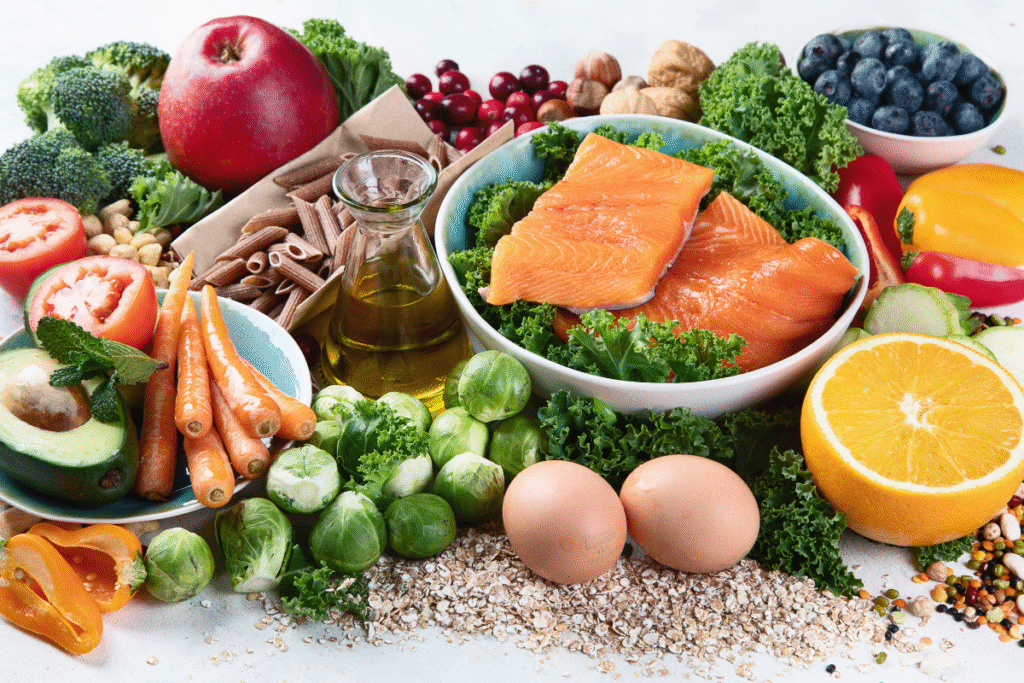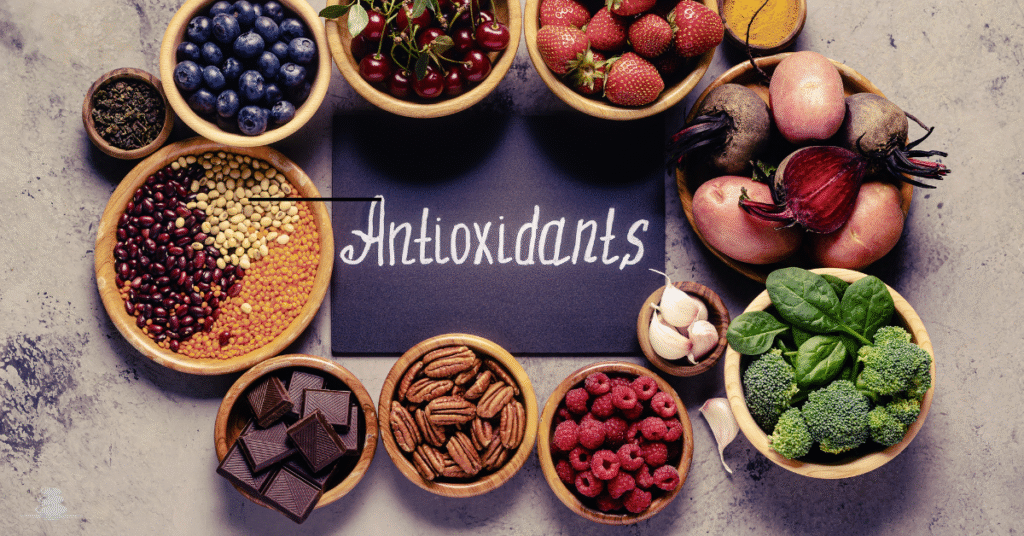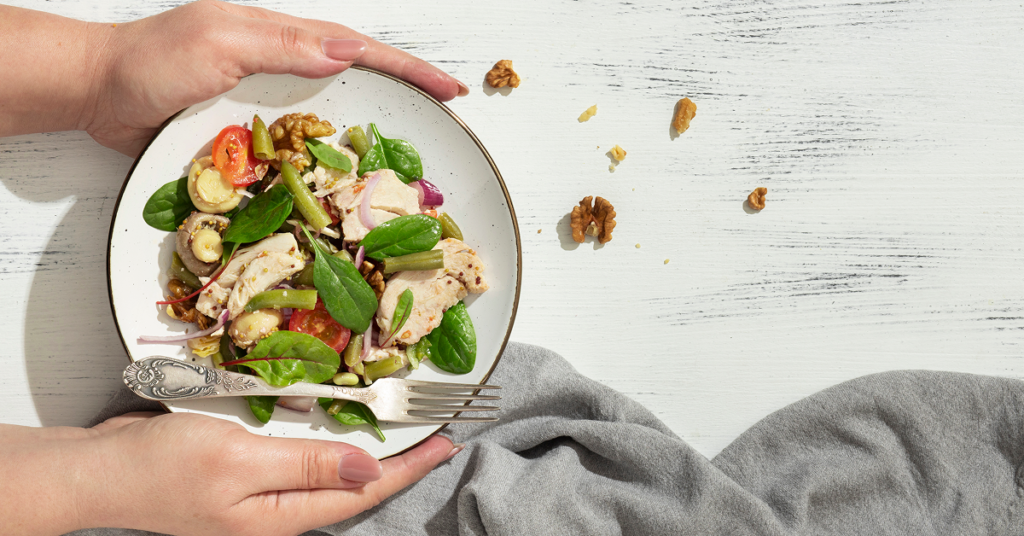The Power of Antioxidants
If you’ve ever read a food label or scrolled through a health blog, chances are you’ve come across the term “antioxidants.” From vibrant berries to a square of rich dark chocolate, antioxidants are often praised as super-nutrients that can boost your health, fight disease, and even slow aging. But what exactly are they—and do they really live up to the hype?
At their core, antioxidants are natural compounds found in a wide variety of foods, especially plant-based ones. Their job? To protect your body from harmful molecules known as free radicals. These unstable molecules are created during normal body processes like metabolism, but can also be triggered by external factors such as pollution, poor diet, cigarette smoke, and UV exposure.
When there are too many free radicals in your system and not enough antioxidants to balance them out, it can lead to a condition called oxidative stress. Over time, oxidative stress can damage your cells and DNA, contributing to chronic illnesses like heart disease, diabetes, Alzheimer’s, and even cancer. It can also accelerate the aging process—both inside and out.
The good news? A diet rich in antioxidants can help tip the scales back in your favor. These protective compounds work by neutralizing free radicals before they can cause harm, acting like a defense shield for your cells.
So whether you’re looking to boost your immune system, protect your heart, keep your skin glowing, or simply live a longer, healthier life, understanding antioxidants is a smart place to start.
Let’s break it down—what antioxidants are, how they work, and why your plate should always make room for them.
Types of Antioxidants

Not all antioxidants are created equal—each type has its own unique role in keeping your body balanced and healthy. Here’s a closer look at the most common and powerful antioxidants you should know about:
Vitamin C (Ascorbic Acid)
Found in: Citrus fruits (like oranges, lemons), strawberries, kiwi, bell peppers, broccoli
Vitamin C is one of the most popular and powerful antioxidants. It helps strengthen the immune system, supports the body’s natural healing processes, and aids in collagen production, which keeps your skin firm and youthful. It also helps your body absorb iron from plant-based foods—super important if you’re vegetarian or vegan. Plus, its ability to protect skin cells from UV damage makes it a favorite for skin health.
Vitamin E (Tocopherol)
Found in: Nuts, seeds, spinach, avocado, vegetable oils (like sunflower or safflower oil)
Vitamin E is a fat-soluble antioxidant that helps protect your cells from oxidative damage by shielding cell membranes. It’s especially important for skin and eye health, and it may help reduce inflammation in the body. It also works alongside vitamin C to keep your skin glowing and smooth from the inside out.
Beta-Carotene (Provitamin A)
Found in: Carrots, sweet potatoes, pumpkin, butternut squash, mangoes
Beta-carotene is a plant pigment that the body converts into vitamin A, essential for healthy vision, skin repair, and immune support. It’s what gives orange and yellow veggies their vibrant color—and their powerful antioxidant properties. Diets rich in beta-carotene are linked to a lower risk of certain cancers and heart disease.
Flavonoids (Polyphenols)
Found in: Dark chocolate, apples, red grapes, onions, berries, green and black tea
Flavonoids are a large group of plant-based antioxidants known for their anti-inflammatory, antiviral, and anticancer benefits. They’re particularly powerful in supporting heart health by improving blood circulation and reducing blood pressure. Want a tasty way to get them in? Enjoy a cup of green tea or a piece of dark chocolate (70% or higher).
Selenium
Found in: Brazil nuts, seafood, eggs, whole grains, sunflower seeds
Selenium is a trace mineral with mighty antioxidant power. It plays a key role in thyroid function, supports the immune system, and may help reduce the risk of some cancers. Just one or two Brazil nuts a day can give you all the selenium your body needs—talk about a powerful snack!
Including a variety of these antioxidants in your daily diet can help your body function at its best, protect against disease, and keep you looking and feeling your best over time. Think of them as your body’s internal cleanup crew—scanning for damage, mopping up harmful molecules, and keeping your cells in top shape.
The Benefits of Antioxidants
Now that we understand what antioxidants are and where to find them, let’s look at why they’re so essential to your overall health and wellness. These powerful compounds work behind the scenes, offering protection and repair at the cellular level—something we all benefit from, no matter our age or lifestyle.
Combat Chronic Diseases
One of the biggest reasons antioxidants are so highly praised is their role in reducing the risk of chronic diseases. Oxidative stress, caused by an excess of free radicals, is linked to a wide range of serious health issues—including heart disease, type 2 diabetes, stroke, and Alzheimer’s.
Antioxidants step in to neutralize these damaging molecules before they can wreak havoc on your cells and organs. This protective power helps reduce inflammation, support cardiovascular health, and keep your blood vessels flexible and functioning properly.
Bottom line: A diet rich in antioxidants could help lower your risk of developing many common chronic conditions.
Slow Down the Aging Process
Aging is a natural part of life—but antioxidants can help slow the visible and internal signs of aging by fighting off free radicals that accelerate the breakdown of collagen, elastin, and other vital proteins in the skin.
By minimizing cellular damage, antioxidants help preserve skin elasticity, reduce fine lines and wrinkles, and promote a healthy, radiant glow. And it’s not just about beauty—these same protective effects help your organs and tissues stay stronger as you age.
Fun fact: Antioxidants like vitamin C support collagen production, which keeps your skin smooth and firm from the inside out.
Boost Immune Health
Your immune system works hard to defend your body against viruses, bacteria, and infections—and antioxidants are one of its strongest allies.
Compounds like vitamin C, vitamin E, and selenium help keep immune cells healthy and responsive by reducing oxidative damage and enhancing cellular repair. This means your body can bounce back faster from illness, and you’re better protected in the long run.
Pro tip: Add citrus fruits, sunflower seeds, and leafy greens to your meals to give your immune system a natural, powerful boost.
Improve Brain Function
Your brain is particularly sensitive to oxidative stress due to its high oxygen use and delicate cells. Over time, this stress can contribute to mental decline, memory loss, and even neurodegenerative diseases like Alzheimer’s and Parkinson’s.
Antioxidants help maintain brain health by protecting neurons, reducing inflammation, and improving blood flow to the brain. Some studies suggest that diets high in antioxidants may even enhance mental clarity, focus, and mood.
Smart snack: Blueberries are rich in flavonoids and have been shown to improve brain function and delay cognitive aging.
In Summary
From reducing the risk of disease to supporting brainpower and skin health, antioxidants are a key piece of the wellness puzzle. While your body naturally produces some antioxidants, the best way to stay protected is to fill your plate with colorful, whole foods rich in these powerful compounds.
Think of antioxidants as your body’s personal defense team—always ready to neutralize threats and keep you feeling your best, inside and out.
Foods Rich in Antioxidants
Want to increase your antioxidant intake? The good news is, you don’t need fancy supplements or expensive superfoods. Antioxidants are abundant in many common, whole foods—especially those that are colorful and plant-based. Below are some of the best antioxidant-rich foods to include in your daily diet for overall health and wellness.
Berries

Berries like blueberries, strawberries, raspberries, and blackberries are some of the richest sources of antioxidants available. They are particularly high in vitamin C and flavonoids, which help fight inflammation and oxidative stress. Blueberries stand out for their brain-protective properties and their potential to support memory and cognitive function.
Try this: Add a handful of fresh or frozen berries to your oatmeal, smoothies, or yogurt bowls for a naturally sweet and nutritious boost.
Leafy Greens
Dark leafy vegetables such as spinach, kale, arugula, and Swiss chard are packed with essential nutrients and antioxidants, including vitamins A, C, and E. These greens support immune health, eye function, and healthy skin, and their anti-inflammatory compounds help protect cells from oxidative damage.
How to enjoy: Blend spinach into your morning smoothie, toss kale into salads, or sauté your favorite greens with olive oil and garlic for a nourishing side dish.
Dark Chocolate
High-quality dark chocolate (containing at least 70% cocoa) is not only a delicious treat but also a potent source of flavonoids. These antioxidants are known for supporting cardiovascular health and enhancing brain function. Dark chocolate may also help reduce inflammation and improve circulation.
Pro tip: Choose minimally processed dark chocolate with low added sugar and enjoy it in small portions as part of a balanced diet.
Grapes and Red Wine
Red grapes contain a powerful antioxidant called resveratrol, which is found in their skin. Resveratrol is believed to support heart health and protect against cell damage. While red wine also contains resveratrol, whole grapes provide these benefits without the added risks of alcohol consumption.
Suggestion: Snack on fresh red grapes, add them to salads, or freeze them for a refreshing treat. If consuming red wine, do so in moderation—no more than one glass per day for women and two for men.
Orange and Yellow Vegetables
Vegetables like carrots, sweet potatoes, butternut squash, pumpkin, and bell peppers are excellent sources of beta-carotene, a type of antioxidant that the body converts into vitamin A. These nutrients are essential for maintaining healthy vision, supporting the immune system, and promoting skin renewal.
In the kitchen: Roast a mix of sweet potatoes, carrots, and squash for a vibrant side dish, or blend cooked pumpkin into soups and smoothies.
Nuts and Seeds
Almonds, walnuts, sunflower seeds, chia seeds, and flaxseeds are full of healthy fats, vitamin E, selenium, and polyphenols—all of which act as antioxidants in the body. These nutrients help reduce inflammation, protect cell membranes, and support heart health.
How to include them: Sprinkle seeds over oatmeal or salads, blend nut butters into smoothies, or snack on a small handful of raw nuts.
Green Tea
Green tea is one of the most antioxidant-rich beverages, thanks to its high concentration of catechins—compounds that have been shown to reduce inflammation and support fat metabolism. Drinking green tea regularly may also help protect against heart disease and improve brain function.
Tip: Brew a cup of green tea in the morning or afternoon as a healthy, low-caffeine alternative to coffee. For the best benefits, avoid adding sugar or artificial sweeteners.
The Takeaway
If you want to protect your health and support your body’s natural defense systems, focus on incorporating a variety of antioxidant-rich foods into your meals. Eating a wide range of fruits, vegetables, nuts, seeds, and whole grains—often referred to as “eating the rainbow”—is one of the simplest and most effective ways to fuel your body with these protective compounds.
By making antioxidant-rich foods a regular part of your diet, you’ll be giving your body the tools it needs to fight oxidative stress, boost energy levels, slow signs of aging, and stay resilient against disease.
Final Thoughts
Antioxidants are more than just a health buzzword—they’re powerful compounds that help protect your body from within. By reducing oxidative stress, they support everything from your skin and immune system to brain function and heart health.
The best part? You don’t need complicated diets or expensive supplements to get them. Simply filling your plate with a variety of colorful, whole foods—like berries, leafy greens, nuts, and vegetables—can help you naturally boost your antioxidant intake.
Whether you’re trying to feel more energized, slow down aging, or prevent chronic illness, antioxidants should absolutely have a place in your daily nutrition. Start small, stay consistent, and let food be your best defense.
Images: Canva



